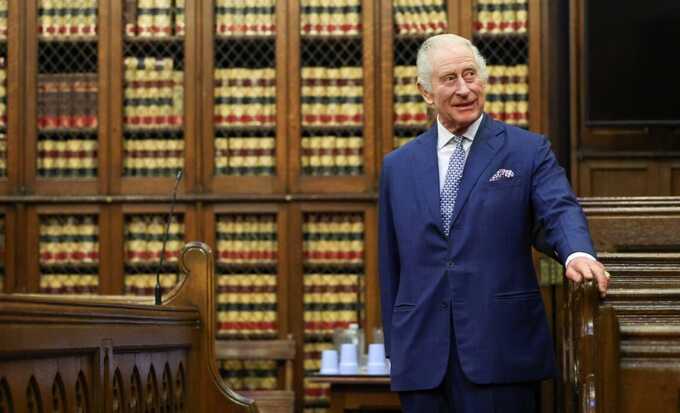Do the royals vote, and what are the rules for them as political parties start campaigning?

The relationship between politics and the palace is a sensitive one - even more so during a general election campaign.
The political parties have hit the campaign trail, rolling out their policies - and the odd stunt - to try and get your backing.
But one family that won’t be casting a vote is the royals.
Does the King vote?
It is not specifically written in law, but the answer is no.
Dr Craig Prescott, lecturer in law and a constitutional expert at Royal Holloway University of London, said: "Clearly the King is in a unique position as head of state and, as such, is expected to remain ’above’ politics.
"Not voting on election day reflects this position. There’s also a more constitutional reason. Members of the House of Lords cannot vote because they are part of parliament, and so it has always been the case that peers had no right to vote for members sitting in the other house of parliament.
"In this sense, the practice that the monarch does not vote reflects that they are part of parliament, and it is for the general public to choose who represents them in the Commons."
Do the rest of the family vote?
Alastair Bruce, Sky News’s events commentator and constitutional expert, said: "All members of the Royal Family, other than the sovereign, may vote.
"Traditionally, they do not. This is principally to protect the apolitical nature of their support to the monarch but also because, in the past, as royal dukes, many male members of the family were prevented by law from voting because they could sit as peers in the House of Lords."
Bruce added: "When the Royal Family agreed to withdraw from exercising their rights to sit and speak in the House of Lords in 1999, it technically lifted the bar to vote in elections."
Dr Prescott said: "Similarly with the monarch, those members of the Royal Family who also held peerages were banned from voting, because with their peerages, they were technically members of the House of Lords.
"This changed with the House of Lords Reform Act 1999, which removed most hereditary peers from the membership of the House of Lords, and so allowed those peers who were no longer members to vote for the first time.
"So this would have applied to Prince Philip, the Duke of Edinburgh, Prince Charles when he was Duke of Cornwall, or to Prince Andrew, as Duke of York. But you would expect that, for the same reasons as the monarch, working members of the Royal Family would not vote because the monarchy as a whole is expected to be above politics and follow the King’s lead."
Interestingly, in 2020 the Duchess of Sussex gave an interview stating that Prince Harry had never been "allowed" to vote.
However, members of the Royal Family who are not "working royals", such as Zara Tindall or David Armstrong-Jones, the second Earl of Snowdon, would be able to vote. Whether they do is not entirely clear.
"Purdah", as the Civil Service refers to it, is a "period of pre-election sensitivity".
The King, of course, has important roles to fulfil around a general election. Rishi Sunak, in his speech outside Number 10 announcing the election, told us he had notified the monarch of his intention to call the election.
The King, using his prerogative powers, has given effect to the dissolution of parliament and the calling of another. Once the votes have been counted, it will then be up to the monarch to formally appoint the prime minister.
In the weeks running up to polling day, however, Alastair Bruce said it is important the Royal Family is not seen to do anything that may be perceived as passing comment on the campaign and policy promises.
It will be the first general election of the King’s reign.
Not long after it was called, Buckingham Palace said the Royal Family was postponing engagements which "may appear to divert attention or distract from the election campaign".
It has however been confirmed that the King will attend Trooping the Colour, which falls within the election campaign period in June.
What has already been postponed and what could be cancelled?
We know that engagements for both the King and the Prince of Wales were postponed in the days immediately after the general election was called. Meetings were also held at the palace to decide which visits would still be appropriate.
We do not know exactly how many visits have had to be moved and we are waiting to see if a state visit from the Japanese emperor will still go ahead at the end of June.
Experts said it was interesting that the palace felt the need to issue a statement saying it was reviewing engagements.
That did not happen under Queen Elizabeth II, and some have suggested it shows that the Royal Family is increasingly involved in social causes that may potentially have a political slant.
So expect to see lots of ceremonial events over the next few weeks - as we normally would at this time of year - but nothing that could get them into political hot water.
Read more similar news:
Comments:
comments powered by Disqus

































